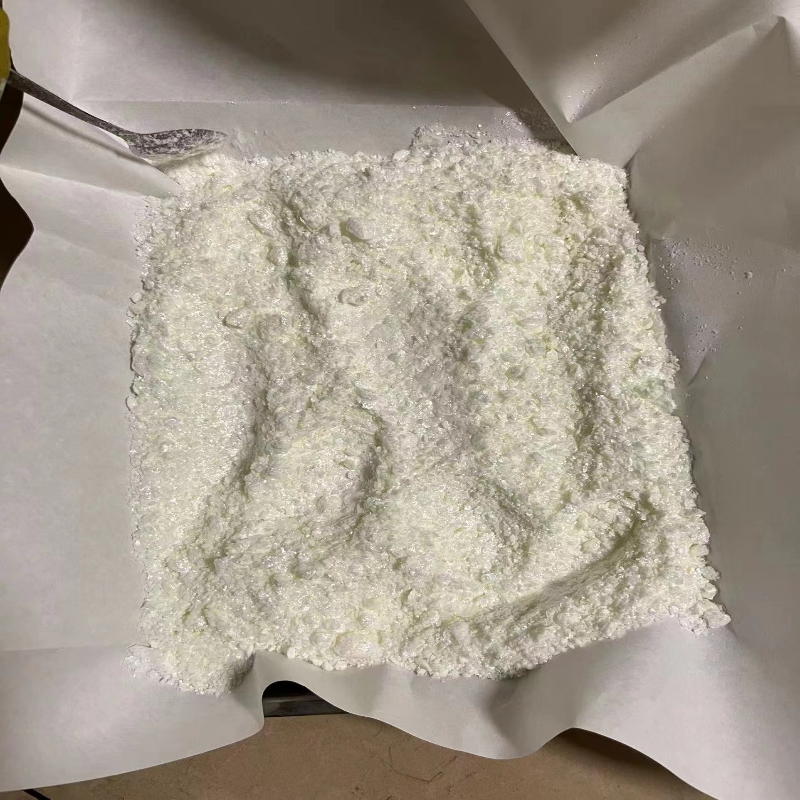-
Categories
-
Pharmaceutical Intermediates
-
Active Pharmaceutical Ingredients
-
Food Additives
- Industrial Coatings
- Agrochemicals
- Dyes and Pigments
- Surfactant
- Flavors and Fragrances
- Chemical Reagents
- Catalyst and Auxiliary
- Natural Products
- Inorganic Chemistry
-
Organic Chemistry
-
Biochemical Engineering
- Analytical Chemistry
-
Cosmetic Ingredient
- Water Treatment Chemical
-
Pharmaceutical Intermediates
Promotion
ECHEMI Mall
Wholesale
Weekly Price
Exhibition
News
-
Trade Service
From individual strips to functionalization in injection molding, ENGEL integrates all process steps for the efficient, automated production of fiber-reinforced composite parts (image via ENGEL)
With extensive injection molding experience and automation expertise, ENGEL has developed cost-effective production concepts for the production of composite parts
.
At the Composites Exhibition in Shanghai, China, from September 2 to 4, 2020, the Austria-based machine builder and system solutions provider (Booth: 2-A2407) will present samples made for the automotive industry by , to demonstrate the great potential offered by its high-volume production concept, of which thermoplastic solutions will be the focus of this year's ENGEL stand
.
ENGEL's solution for sustainable transport needs is organomelt, a perfectly developed process that has been deployed in high-volume production to produce fully automated front end brackets for Daimler and other automotive products
.
“We are seeing interest in the organomelt process from Chinese automakers and Tier 1 suppliers
,” says Markus Fuchs, Director of ENGEL Automotive Asia.
Load Compatible Design of Composite Parts
Load Compatible Design of Composite PartsIn the organomelt process, thermoplastic fiber composite prepregs based on thermoplastic fabrics and unidirectional (UD) glass fiber or carbon fiber reinforced tapes are heated in an infrared heating furnace specially developed for this technology; robots then combine the thermoplastic The material is placed into an injection mold, where it is shaped and functionalized in a single processing step
.
With injection molding, overmolding of stiffeners or assembly elements, etc.
can be done directly, enabling an efficient and fully automated production process, which in turn reduces unit costs
.
In addition, consistently using a thermoplastic approach also contributes to sustainability, which makes it easier to develop recycling strategies
.
"Returning composite parts to the material cycle when their useful life is over is one of the current priorities for sustainability in automotive manufacturing,
" Fuchs noted
.
Composite components manufactured using the ENGEL organomelt process combine extremely low weight with excellent crash safety properties
.
With the further development of this process, ENGEL is investigating production technologies that enable load-compatible composite component designs
.
In order to adapt the shape and structure of the parts to the required lightweight characteristics, several different prepregs, such as thermoplastic fabrics or UD tapes of different thicknesses, will be used in combination for each part in the future
.
ENGEL will demonstrate this potential with a door structure it has developed in cooperation with the automotive supplier Brose: Three thermoplastic fabrics with thicknesses between 0.
6 and 2.
5 mm have been processed
.
By choosing load-compatible organic sheets, the different loads acting on a single area of the part can be taken into account in an optimal way, eg, the window area of the door structure is more rigid than the area inside the door
.
Produces suitable preforms within injection cycle time
Produces suitable preforms within injection cycle timeThe tape placement cell developed by ENGEL is capable of delivering custom-made preforms in a cycle time of one minute (image via ENGEL)
As a system solutions provider, ENGEL alone is able to develop for its customers fully automated solutions that integrate the entire process, from individual strips to functionalization in the injection molding process
.
To be cost-effective in high-volume production, the lay-up and consolidation process of the stack (tape lay-up) must be done in-line, but also within the cycle time of the injection molding process
.
To do this, ENGEL has integrated a tape placement unit and a consolidation unit
.
This integrated process produces suitable preforms with cycle times of just one minute
.
In order to minimize cycle times, the tape placement unit developed by ENGEL is based on the pick-and-place principle with optical image processing: individual tape layers are picked up, visually inspected, placed in controlled positions, and then placed on the welded together
.
Together with its partner FILL (Gurten, Austria), ENGEL has also developed a production unit based on the heating/cooling principle for the consolidation process immediately downstream: In a fully automated process, the system consolidates the fiber stack into A solid board with targeted thickness variations
.
More efficient thermoset production systems
More efficient thermoset production systemsAt the Composites Show, ENGEL will use an example in the design of lightweight thermosets to demonstrate that productivity can be improved even with tried and tested technology
.
A German auto parts supplier used an ENGEL v-duo 1700 machine and fully automated HP-RTM process to mass-produce the Audi A8 rear seat panels with a complex carbon fiber structure and local reinforcement
.
The interdisciplinary ENGEL lightweight engineering team covers a wide range of development areas, from the processing of thermoplastic preforms and thermoset molding compounds to reaction technology
.
At the Lightweight Composites Technology Center in Austria, the machine builder develops particularly economical composite solutions for the automotive industry and, together with partners from industry and universities, has achieved several milestones of international significance results
.







